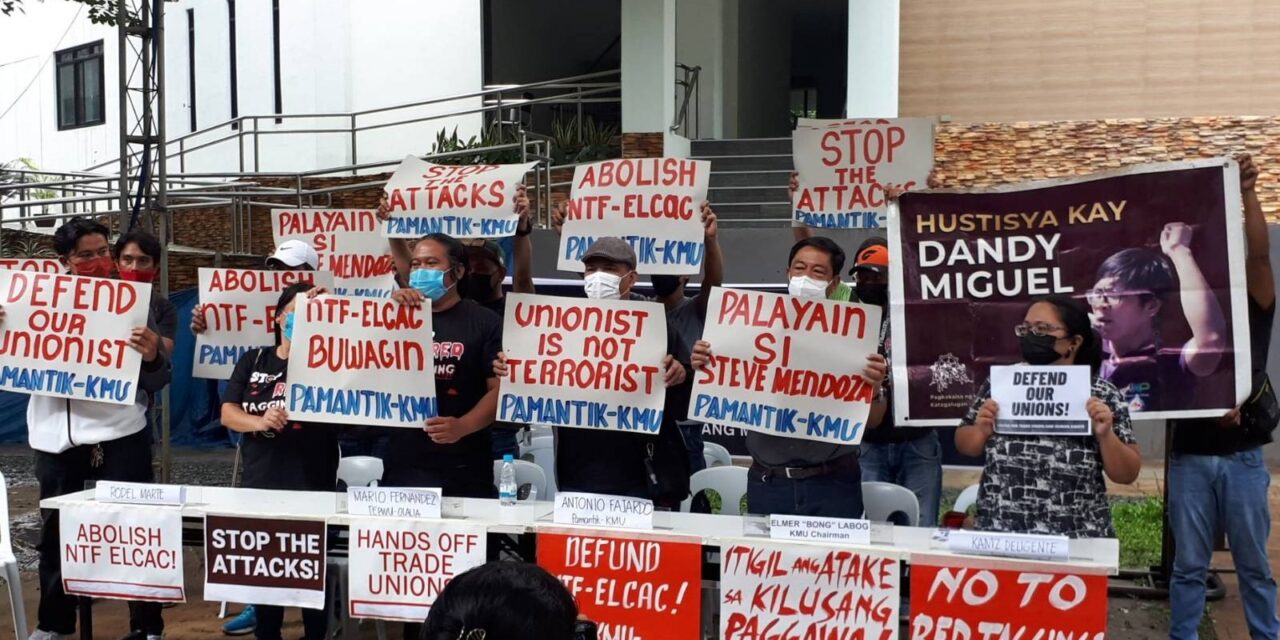UN Special Rapporteur Will See through NTF-ELCAC’s Lies, Labor NGO Hopes

As UN Special Rapporteur for Freedom of Opinion and Expression, Irene Khan, continue her visit in the country, the Center for Trade Union and Human Rights (CTUHR), an NGO working for the empowerment of workers in the formal and informal sectors, expressed concerns over statements issued by Philippine government agencies, as well as its trust that Ms. Khan will see through their lies.
As expected, the National Task Force to End Local Communist Armed Conflict (NTF-ELCAC) spewed out its catchwords: “terrorism and violent extermism,” “lasting peace… and rule of law,” “abuse or violence against women and children,” and “false narratives.”
Contrary to its intention, the NTF-ELCAC is further confirming the analysis of people’s and human rights organizations in the Philippines: that the Philippine government is using “anti-terrorism” to stifle freedom of opinion and expression in the country.
Yesterday, January 23, in a series of meetings with civil society organizations, various violations of freedom of opinion and expression and freedom of association and assembly were discussed with UNSR Khan. CTUHR shared that existing policies and agencies, such as the Alliance for Industrial Peace and Program Office (AIPPO), the NTF-ELCAC and the Anti-Terror Law continue to enable these violations. The evidence and testimonies are clear: the NTF-ELCAC has been targeting individuals and organizations that uphold labor and human rights, not terrorism. The victims come from a wide range of sectors of society — from labor activists, peasants to journalists, from Church people t0 lawyers — and are not terrorists. The perpetrator of human rights violations is also very clear — the Philippine government.
It is the NTF-ELCAC that is notorious for promoting false narratives, as shown by the recent Senate investigation on its personalities Lorraine Badoy and Jeffrey Celiz. Through its efforts of promoting and justifying rights violations, the NTF-ELCAC is fanning the flames of the armed rebellion in the country, which it labels as terrorism. It abets violations of the rule of law and violence against children and women.
At the same time, CTUHR responded to the Department of Foreign Affairs’ statement that the UN Special Rapporteur will witness the Philippine government’s “open, sustained and sincere cooperation… with bilateral and regional partners and the UN” and “human rights-based development agenda and good governance as well as its contributions in strengthening global norms to uphold human rights and dignity.”
These are all empty generalizations. Sincere cooperation does not only mean allowing UN special rapporteurs to come to the country and investigate. The proof of the pudding is in the eating. The proof of sincere cooperation is the implementation of recommendations made by the special rapporteurs. So far, the Philippine government has not done this.
Ms. Khan is the fourth UN special rapporteur to have visited the country in 14 months, and she arrived in the country exactly one year after the International Labour Organization’s High Level Tripartite Mission started in 2023. The last UN independent expert who visited the country was UN Special Rapporteur on the promotion and protection of human rights in the context of climate change, Ian Fry. He strongly recommended to abolish the NTF-ELCAC, after hearing various testimonies about its atrocities. Yet the NTF-ELCAC continues to exist and destroy freedom of opinion and expression in the country.###
